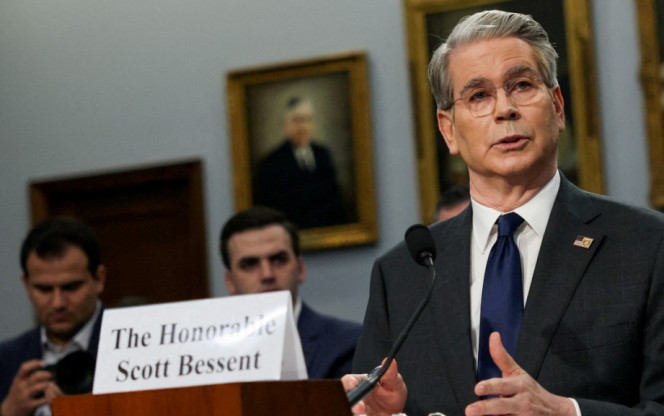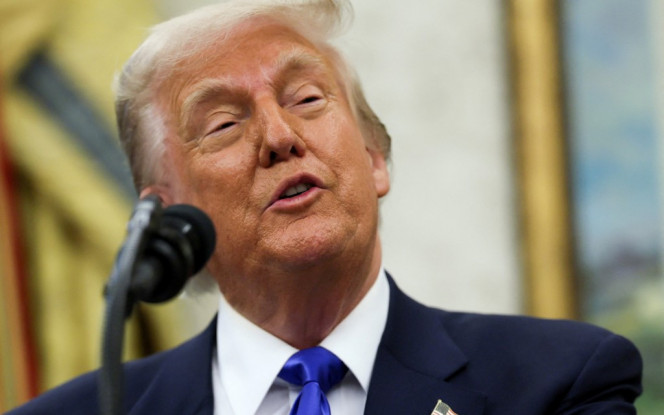China's Growing Influence in Asia; China Strengthens Relations with Russia; China-Sweden's 75th Anniversary of Diplomatic Relations; North Korea's Missile Tests
U.S. Withdrawal and China’s Growing Influence in Asia
Recent reports from the New York Times suggest that China is filling the vacuum left by the U.S. withdrawal from Vietnam, marking the 50th anniversary of this historic event. Hannah Beech notes the profound shift in Asia’s balance of power, with China now asserting itself as a regional hegemon. The narrative posits that China has become increasingly influential in Asia, suggesting a diminishing role for U.S. interests in the region. Beech's extensive reporting from Asia offers a deep dive into the dynamics and strategic moves by China to consolidate its presence.
The sentiment here aligns with historical trends, where power vacuums often invite new power players. China's strategic expansion can be seen as a natural progression in global politics, where economic might often translates into geopolitical influence. This reconfiguration of power dynamics might have ramifications for regional security structures and alliance systems, particularly for countries reliant on U.S. protection and support.
China and Russia's Strengthened Relationship
Another New York Times article highlights a joint statement by Vladimir Putin and Xi Jinping criticizing U.S. actions, further underscoring the deepening Russia-China alliance. Reporters Zixu Wang, Paul Sonne, and David Pierson discuss the duo’s emphasis on mutual distrust of American policies, particularly around Ukraine and strategic regional dominance.
The framing of the narrative underscores the alignment of authoritarian powers against a common democratic adversary—namely, the United States. This alliance is part of a broader geopolitical strategy, forming a bulwark against Western influence. Increased collaboration between Russia and China suggests a pivot towards a multipolar world order where regional powers assert themselves more aggressively on the world stage. This might influence global governance structures, potentially polarizing international relations further.
The Paper discusses the recent summit between China's President Xi Jinping and Russia's Vladimir Putin, highlighting the commitment to strengthening bilateral relations amid global geopolitical shifts. The summit underscored mutual goals of promoting a multipolar world order and equitable economic globalization.
This joint statement reflects a long-term vision aimed not just at fortifying Sino-Russian ties but at challenging Western hegemony. Concrete results from the summit, including agreements in technology, agriculture, and energy, signal robust cooperation that could reshape market dynamics. The narrative reveals an emerging axis of power stretching across Eurasia, potentially redefining existing global trade and security alliances. This reflects broader trends towards strategic realignments in international relations, championing cooperation over competition in an increasingly interconnected world.
Impact of U.S. Tariff Policies on Global Tech Development
In a comprehensive report from The Paper, the focus shifts to the global repercussions of U.S. imposed tariffs on semiconductors and pharmaceuticals. The Chinese publication criticizes these tariffs as detrimental to technological development and global cooperation. The narrative casts U.S. policies as protectionist, using historical precedents to argue against the effectiveness of high tariffs. It suggests that U.S. actions could fragment global supply chains, stifle innovation, and lead to isolation.
The critique presents a compelling argument that these tariffs could inadvertently escalate costs globally and undermine technological advancements. The tone of the article reflects a defensive stance, portraying China as a victim of aggressive U.S. policies rather than a competitor in a balanced market scenario. The potential isolation of U.S. economic policies could lead to strained international relations and economic inefficiencies, affecting both technological growth and market accessibility worldwide.
China's Diplomatic Relations with Sweden
The Foreign Ministry of China celebrates 75 years of diplomatic relations with Sweden, marking this milestone with mutual compliments and a shared commitment to multilateralism. The rhetoric is diplomatic and optimistic, emphasizing sustained cooperation across diverse sectors such as trade, technology, and education.
This relationship highlights China's ongoing strategy to strengthen ties with European nations, emphasizing soft power and diplomatic engagement. The narrative here contrasts sharply with more contentious international issues, portraying a harmonious and mutually beneficial partnership. This serves as a blueprint for China's approach to international diplomacy, signifying its eagerness to forge reliable alliances beyond traditional spheres of influence.
The Importance of Military Preparedness: North Korea's Missile Tests
The Sing Tao reported on North Korea's recent missile tests, demonstrating the importance Pyongyang places on nuclear readiness. These tests serve as a stark reminder of the existential threats persisting in the Korean peninsula. Kim Jong-un emphasizes the strategic necessity of nuclear capabilities to counter perceived aggression from the United States.
This reflects the broader security dilemma faced by nations in the region, where armament often begets greater tensions and an arms race. The narrative from Sing Tao hints at an entrenched militaristic stance from North Korea. This contributes to regional instability, compelling neighboring countries and the international community to reconsider their security policies and defense agreements.
Denmark Challenges U.S. Activities in Greenland
The Paper reports Denmark's diplomatic protest against U.S. espionage activities in Greenland. The Danish Foreign Minister robustly questioned the legitimacy of such actions, signifying a potential rift in U.S.-Danish relations. The issue centers on U.S. intelligence operations perceived as encroachments on Danish sovereignty.
This incident puts a spotlight on the Arctic region's strategic importance and the evolving geopolitical interests surrounding it. The grievance voiced by Denmark suggests a broader question about territorial sovereignty and international protocol violations. This might influence Arctic governance policies, international cooperation, and discussions on military presence in the delicate polar ecosystem.



